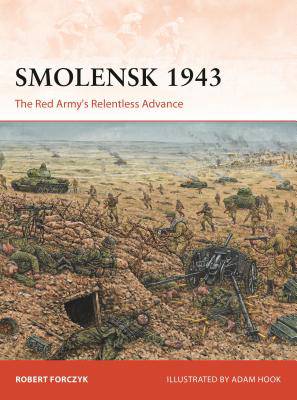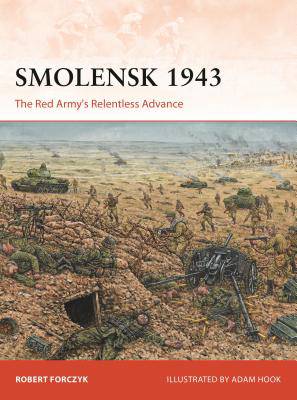
- Retrait gratuit dans votre magasin Club
- 7.000.000 titres dans notre catalogue
- Payer en toute sécurité
- Toujours un magasin près de chez vous
- Retrait gratuit dans votre magasin Club
- 7.000.0000 titres dans notre catalogue
- Payer en toute sécurité
- Toujours un magasin près de chez vous
Description
Smolensk 1943 focuses on a major offensive that is virtually unknown in the West. With the German defeat at Kursk, the Soviet Stavka (high command) ordered the Western and Kalinin Fronts to launch Operation Suvorov in order to liberate the important city of Smolensk. The Germans had held this city for two years and Heeresgruppe Mitte's (Army Group Centre) 4. Armee had heavily fortified the region. The Soviet offensive began in August 1943 and quickly realized that the German defenses were exceedingly tough and that the Western Front had not prepared adequately for an extended offensive. Consequently, the Soviets were forced to pause their offensive after only two weeks, replenish their combat forces, and then begin again.
The German 4. Armee was commanded by Generaloberst Gotthard Heinrici, one of the Wehrmacht's top defensive experts. Although badly outnumbered, Heinrici's army gamely held off two Soviet fronts for seven weeks. Eventually, the 4. Armee's front was finally broken and Smolensk was liberated on 25 September 1943. However, the Western Front was too exhausted to pursue Heinrici's defeated army, which retreated to the fortified cities of Vitebsk, Orsha, and Mogilev; the 4. Armee would hold these cities until the destruction of Army Group Centre in June 1944.Spécifications
Parties prenantes
- Auteur(s) :
- Editeur:
Contenu
- Nombre de pages :
- 96
- Langue:
- Anglais
- Collection :
- Tome:
- n° 331
Caractéristiques
- EAN:
- 9781472830746
- Date de parution :
- 22-01-19
- Format:
- Livre broché
- Format numérique:
- Trade paperback (VS)
- Dimensions :
- 183 mm x 246 mm
- Poids :
- 317 g

Les avis
Nous publions uniquement les avis qui respectent les conditions requises. Consultez nos conditions pour les avis.






